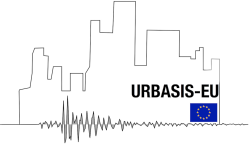WP6 - Scientific and personal career development summer schools
Summer school 1 : Engineering seismology
This course starts out by covering those aspects of probability theory that are prerequisites for natural hazard assessment. In the second part, the course will cover key earthquake seismology and engineering seismology concepts. It will also describe the different types of uncertainties that have to be dealt within this context, and illustrate the sensitivity of probabilistic seismic hazard calculations to various components of the analysis. In the third part, the course will address more advanced and highly specialised topics based on recent project experience (development of regional hazard/ risk maps, site-specific hazard assessments for critical facilities, time-dependent seismic hazard, early warning systems). The lectures will be complemented with practice based on open-sources software (developed by the project participants and the Global Earthquake Foundation) that are implemented on the students’ personal computers.
Summer school 2 : Future challenges for the ESRs in their personal career
For several years, there has been an urgent and pressing need by the public and local and national authorities to get answers from scientists in terms of natural phenomena such as earthquakes. Lessons will be learned on the responsibility and ethics of communication risk to the public/ governments. Examples and knowledge will be drawn from a number of natural hazards ; e.g., flooding, volcanic hazards, and also climate change. Also, to participate in the expertise requires that the rules and standards related to earthquakes are known. The objectives of this training course will thus be :
- to acquire basic training on Euro-Code 8 seismic regulations, as applied in Europe, sharing with professionals from the private sector on the role of the scientific expert, their competence and their framework action ;
- to meet the training demands of the ESRs as well as the industry ;
- to specify the responsibility of scientists and engineers in private companies on activities related to seismic risk ;
- to develop the means of communication, and dissemination of knowledge not covered by the activity of the expertise.
This course will be illustrated by feedback from scientists who have been faced with these difficulties, working with case studies and knowledge of project participants from the private sector. To ensure the success of this course, contributions from external scientists will be used, especially from the social sciences and humanities.
Updated on 30 septembre 2020






